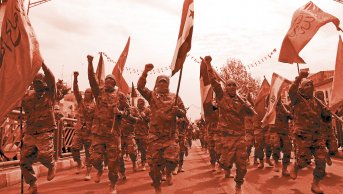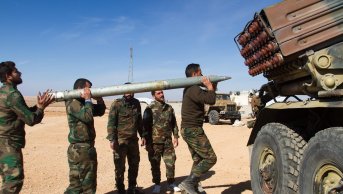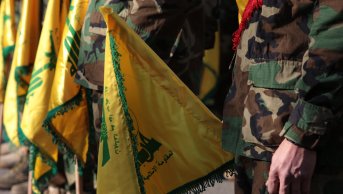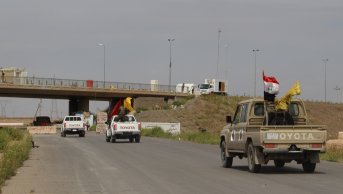YPG’s Increasing Power in West of the Euphrates and Turkey’s Moves
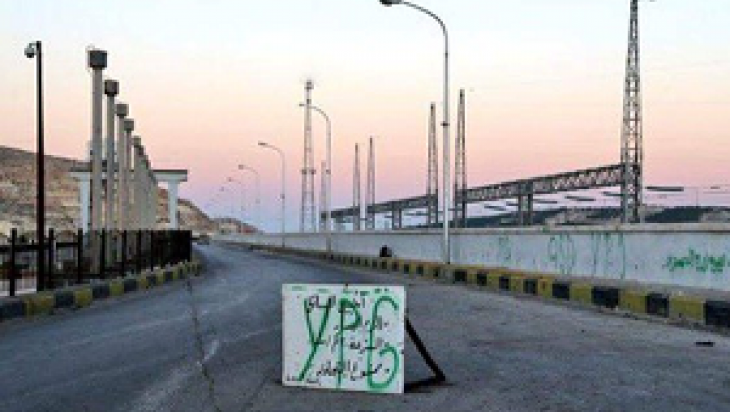
The liberation of Manbij, one of the strongholds of ISIS, by Syrian Democratic Forces (SDF), under the leadership of YPG, the Syrian branch of PKK; is considered a challenge which requires to be confronted and respondedby Turkey, whose Syrian policy after the coup attempt is awaited. Even though established under the name of SDF, where some Arab forces supported by USA are placed, the main actor of this operation is YPG. Like Tal Abyad, Manbij is also a city with a large number of Arab population, and YPG’s presence in cities with large Arab population, like Tal Abyad, rural Raqqa , and Tal Rifaat, with the air support of USA and Russia; may trigger a permanent ethnic conflict in medium terms. For Turkey, the “liberation” of Manbij from IS by YPG simply means that the control of a town, whose borders are close to Turkey, is taken from one terrorist group and has passed into the hands of another. Before the day of the coup attempt on 15 July, Turkey experienced manyterrorist attacks both in Ankara and İstanbul, the two big cities in Turkey. The main actors of these attacks which caused Turkey to turn into itself and to decrease its maneuverability in Syrian politics are ISIS and PKK. Based on this fact, we can say that the crisis in Syria is the most important issue in Turkey; not just for its interests in the region, but for its national security, as well.
Turkey was disturbed by the presence of IS, and its security was directly threatened by missile attacks from rural of Aleppo, which targeted Kilisa few months ago. So Turkey may decide to take more radical actions, because the presence of a YPG zone whose borders may extend from Afrin to Qamishli is inacceptable for Turkey.So Turkey’s recent diplomatic negotiations and cooperation attempts with Russia and Iran should be reviewed as part of these radical actions. Because it is more likelyfor Turkey, Iran and Russia to act together regardingSyria’s integrity, eventhough it might seem impossible for these three actors to come up with a joint decision at the moment. Ankara’s shift towards Moscow and Tehran in order to cooperate against ISIS and YPG, who is constantly increasing its power and developing, means that Turkey is going to look for a solution without USA. Turkey’s diplomatic moves against actors who pose direct threat to its national security, like YPG, IS or Assad regime, are supported by the opposition groups in Syria. These opposition groups, who hold generally IS, and sometimes YPG inside and around Azaz, do not have enough power, in terms of capacity, to wipe out the region. However, controlling Azaz is crucial in case of a possible direct or indirect intervention by Turkey on Northern Syria border.
But what has been going on in Aleppo front for the past couple of weeks shows that Turkey’s strong, trustworthy allies in the field are not the Free Syrian Army (FSA) groups in Azez, but the opposition forces in Idlib and Aleppo. Al-Nusra Front has announced that it has split from Al-Qaeda, and that it will continue its activities under the name of JabhatFateh al-Sham (Front for the Conquest of Levant). After that, around 20 opposition groups organized an united attack in order to break the siege imposed by the Assad regime and the Shiite foreign fighters who are led by IRGC officers, in the south of Aleppo. At the end of the first stage of this operation the Aleppo siege,layed by the the Assad regime and its allies by capturing the Castello road in the north, has been broken from the south.
The opposition groups reached East of Aleppo after capturingRamousehand Aleppo Artillery School. The Assad regime was defeated by an operation launched coordinately by two big military allies –Army of Conquest formed by Islamic groups, and Fatah Halab coalition formed mostly by FSA groups-in the south of Aleppo, which happens to be one of the strongest positions of the regime.There are two outcomes of this defeat. First of all, the Idlib experience and the operation which broke the siege in Aleppo have shown that the air forces and the fire power which the Assad regime currently possesses may not be enough to defend their positions if opposition groups joined forces and acted together because of regimes lack of qualified manpower. This could cause Iran and Russia, the supporters of the regime, to intervene in the war more and toincrease their expenses. And in case of possible progress made by the opposition groups against the regime forces after the siege was broken, may push the foreign supporters of the Assad regime to seriously reconsider “negotiation” and “ceasefire” options. Second of all, this operation has shined upon the influence of Turkey on the forces in the field. Turkey is not just in touch with Turkmen FSA groups, who have limited capacity and may only act as a proxy in some fronts, but also in touch with some major armed groups .Ahrar al-Sham, thelargest group of Army of Conquest coalition and the Northern Syria, comes first among these groups. Other medium scale groups like Faylaq al-Sham and Levant Front also have close relations with Turkey. We should dismiss the idea that Turkey has aposition/power over these groups and over Battle of Aleppo to “make decisions” or to “command”. But Turkey’s logistic support in military and humanitarian aidshouldn’t be disregarded. Even though intended results couldn’t have been obtained, considering Turkey’s efforts to mediate the opposition groups, we can claim that the Battle of Aleppo was an initiative that Turkey was also aware of and whose results made Turkey content for now.
In conclusion, Turkey’s signals to cooperate with Russia and Iran in order to come up with a solution, Turkey’s emphasis on Syria’s integrity and Turkey’s support, both in words and in action, for the opposition activities in Aleppo are all directly (connected) with the current position YPG obtained in the region through USA’s support. So the Aleppo front is not just crucial for the war between the Assad regime and the opposition groups but also for Turkey to defend itself against YPG and IS threats.

